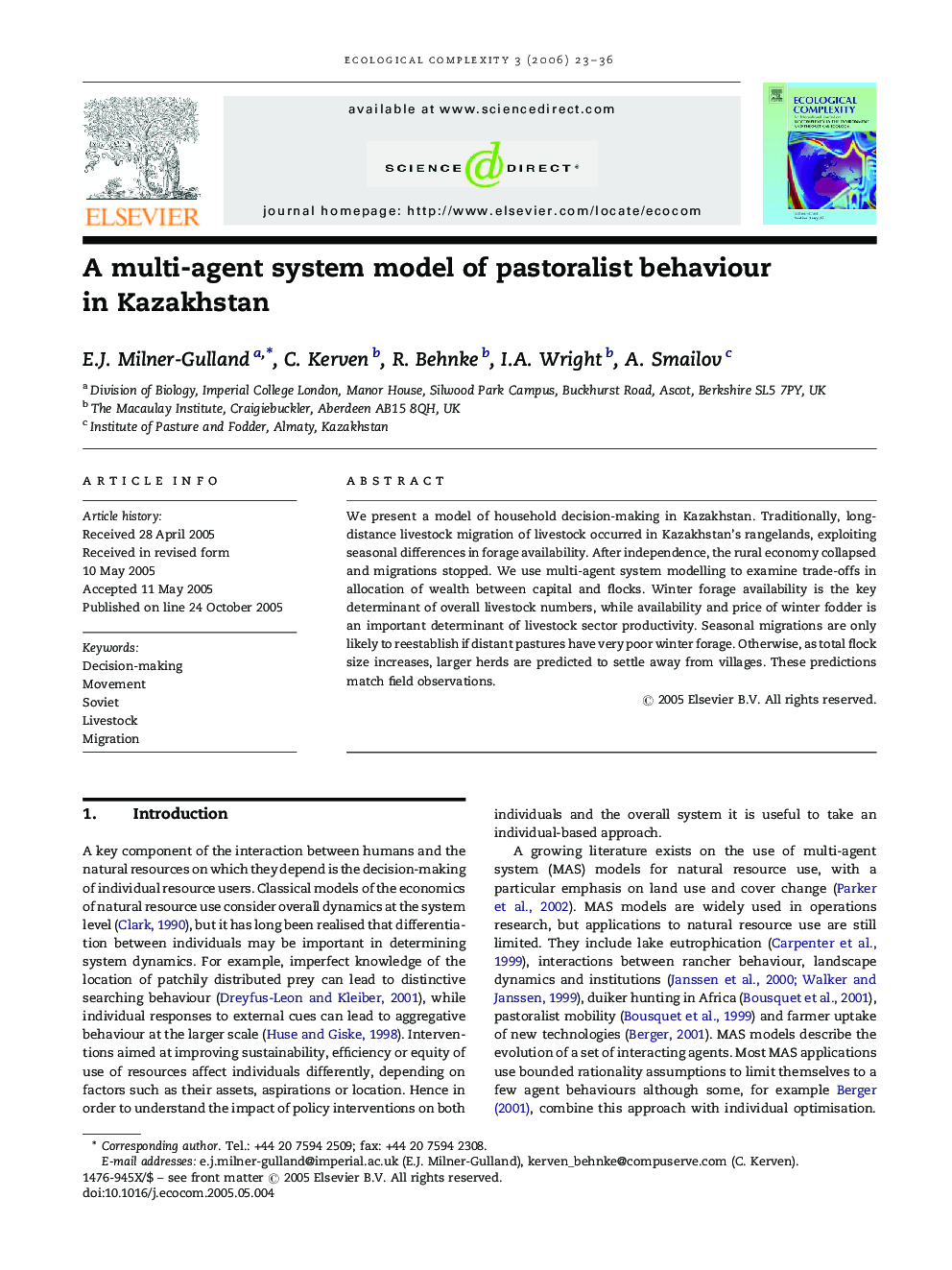| Article ID | Journal | Published Year | Pages | File Type |
|---|---|---|---|---|
| 4372776 | Ecological Complexity | 2006 | 14 Pages |
Abstract
We present a model of household decision-making in Kazakhstan. Traditionally, long-distance livestock migration of livestock occurred in Kazakhstan's rangelands, exploiting seasonal differences in forage availability. After independence, the rural economy collapsed and migrations stopped. We use multi-agent system modelling to examine trade-offs in allocation of wealth between capital and flocks. Winter forage availability is the key determinant of overall livestock numbers, while availability and price of winter fodder is an important determinant of livestock sector productivity. Seasonal migrations are only likely to reestablish if distant pastures have very poor winter forage. Otherwise, as total flock size increases, larger herds are predicted to settle away from villages. These predictions match field observations.
Related Topics
Life Sciences
Agricultural and Biological Sciences
Ecology, Evolution, Behavior and Systematics
Authors
E.J. Milner-Gulland, C. Kerven, R. Behnke, I.A. Wright, A. Smailov,
